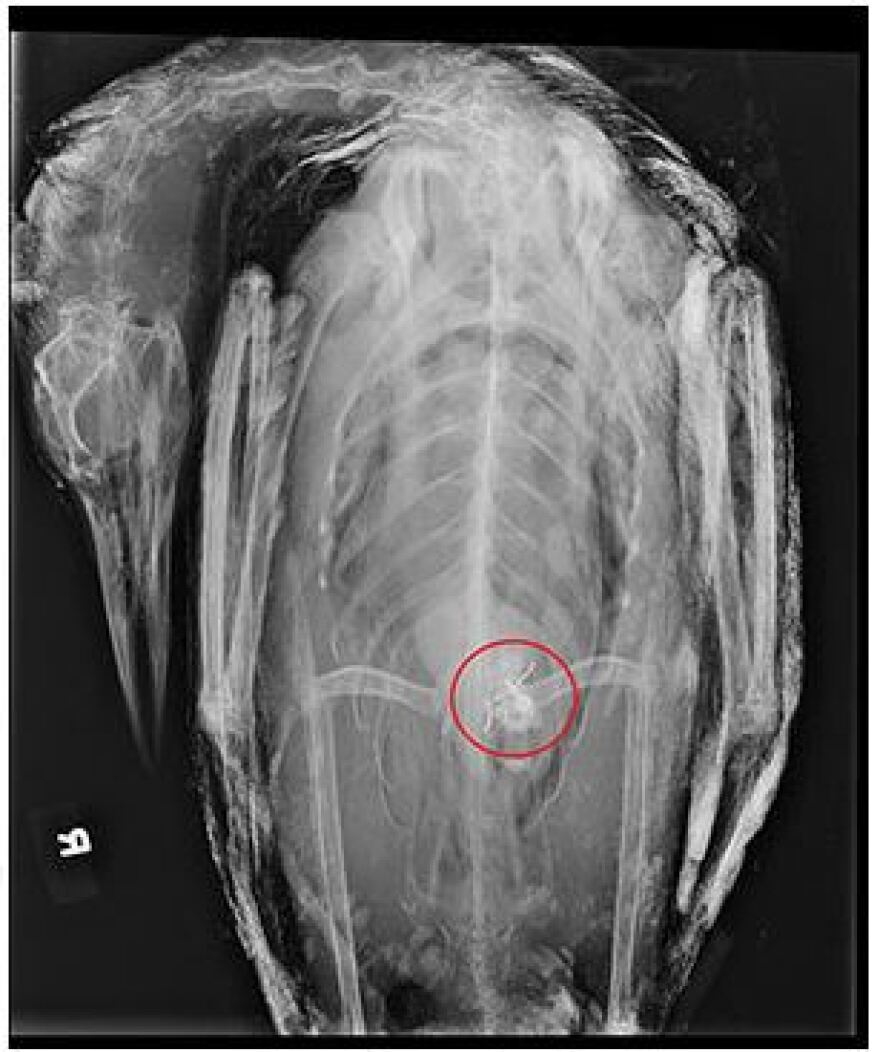A loon has been found dead in Alton Bay with a piece of lead fishing tackle in its gizzard.
According to the Loon Preservation Committee, every year between seven and eleven loons are killed by lead fishing tackle. The one found in Alton Bay is this year’s first.
“The majority of the lead deaths we get are in July and August, and that corresponds exactly with peak lake use and peak fishing,” says Harry Vogel, Senior Biologist with the Committee.
Vogel says fewer than a dozen loons killed per year may not seem like a lot, but in New Hampshire, this accounts for nearly half of loon deaths. Since loons only have a few chicks per year and adults might not breed until they are six or seven years old, anything killing large numbers of adults can have an effect on the population.
Officials are hopeful that after this summer the number of loons killed by lead tackle may finally begin to fall. The legislature passed a ban on certain lead fishing tackle in 2013, but it doesn’t go into effect until next summer.
“So any sinkers or jigs that are one ounce or less will need to be made of something other than lead,” says Vogel, before listing a few of the possibilities, “Tungsten, steel, tin, bismuth,”
In its annual count, committee volunteers found 289 breeding pairs of loons in the state last year.







